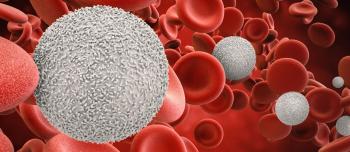Researchers from the Medical College of Wisconsin (MCW) in Milwaukee and several other institutions published a study in the July issue of Blood, the journal of the American Society of Hematology, suggesting a DNA-based explanation for discrepancies found in certain lab tests that help diagnose von Willebrand disease (VWD) in African Americans.
The lead author of the study was Veronica Flood, MD, pediatric hematologist/oncologist and assistant professor, Division of Hematology/Oncology, Department of Pediatrics, MCW. Flood’s research was funded, in part, through a Career Development Award from the National Hemophilia Foundation.
VWD and its subtypes are characterized by either quantitative defects (decreased amount) or qualitative defects (abnormal structure or function) in von Willebrand factor (VWF). Bleeding symptoms can be mild, moderate or severe, depending on the type. Types I and III result from quantitative defects--either partial VWF production or a lack of it—while type II and its subtypes result from dysfunctional VWF. A patient history of bleeding symptoms, plus the presence of other affected family members are part of the diagnosis criteria. In addition, a battery of lab tests measuring VWF quantity and function can confirm the diagnosis.
VWF ristocetin cofactor activity (VWF:RCo) is a relatively simple lab test in which blood cells are separated from a patient’s plasma (liquid component of blood). Ristocetin, an antibiotic that prompts the binding of VWF and platelets, is then added to the plasma. Blood with viable VWF will clot, blood without it will not. Investigators have found in this and prior studies that African Americans often exhibit a poorer ristocetin-induced platelet aggregation, while showing higher levels of VWF, measure by the VWF antigen (VWF:Ag) test, which indicates the quantity of VWF in the blood.
Investigators used data from the TS Zimmerman Program for the Molecular and Clinical Biology of VWD (ZPMCB-VWD), a multicenter study on patients with VWD. Citing the ZPMCB-VWD data, the authors explain that this discrepancy in the VWF:RCo/ VWF:Ag ratio, which is much more common among African Americans, is the result of a single variation in the DNA sequence known as single nucleotide polymorphisms (SNP). The SNP in this instance is triggered by an amino acid substitution in the “D1472H” location in the DNA sequence.
These contradictory results could cause problems for patients. “Reliance on the ristocetin cofactor activity assay, however, may be a source of diagnostic error in certain patients, especially those possessing SNPs that directly affect ristocetin’s interactions with VWF. In addition, the presence of D1472H may affect ristocetin-induced platelet aggregation and could be a source of diagnostic error in platelet function testing. It is important to consider each patient’s bleeding history, taking into account historical challenges and family history, as indiscriminate VWF testing may result in erroneous diagnosis and treatment,” concluded the authors.
The study, “Common VWF Exon 28 Polymorphisms in African Americans Affecting the VWF Activity Assay by Ristocetin Cofactor,” was published in the July 2010 issue of Blood.





